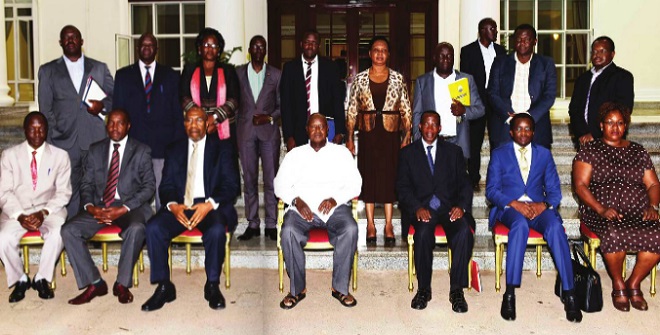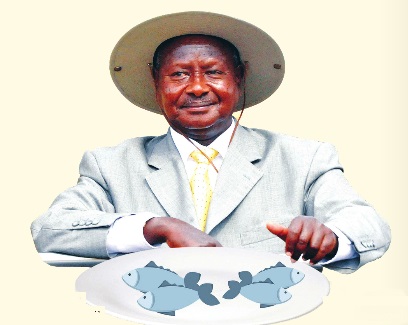Museveni’s small fish: Which one will President grab next?
Could the self-declared president of the opposition Uganda People’s Congress (UPC), Jimmy Akena, soon be appointed to a high government position – possibly among the deputy prime ministers?
Sources close to State House tell The Independent that when choosing members of his recently announced cabinet, President Yoweri Museveni reportedly toyed with appointing Akena. The sources claim although a deal appears to have been done, Akena balked at the last minute and asked for time to consult. Museveni, the story goes, was determined to prominently have members of opposition parties in his cabinet but he was running out of time and, therefore, decided to appoint Akena’s wife, Betty Amongi, to cabinet instead.
Such stories which involve interpreting Museveni’s moves and motives can never be independently verified unless he offers an explanation. However, if true, then Aggrey Awori; a former member of UPC and 2006 presidential contestant who later joined the NRM, could be right.
“As the situation stands,” Awori says, “Museveni can only finish off the opposition the way he finished off UPC.”
In an interview with The Independent, Awori added: “You would be seeing massive defections if opposition politicians didn’t fear the cost of re-election.
“Ever since the Supreme Court ruling sealed the February election victory, Museveni can only get stronger since his key opponents in FDC are no threat outside elections.”
Awori might exaggerate but there is no denying that Museveni has considerably weakened the opposition. That was clearly shown during a recent meeting on July 1 at State House between Museveni and yet another group of hand-picked leaders of opposition parties.

The meeting was arranged under the auspices of the Interparty Cooperation for Dialogue (IPOD), a donor-funded initiative which has been in limbo for the last six years. Set up 2010 in the run-up to the 2011 general elections, it was conceived as a platform for an interparty collaborative effort to nurture multiparty politics in the country. As party chairman, Museveni is a member of IPOD’s highest governing body—the Summit. Ideally, therefore, Museveni would meet with fellow heads of political parties, like Mugisha Muntu of the Forum for Democratic Change (FDC), Norbert Mao of the Democratic Party (DP), Olara Otunnu of the Uganda People’s Congress (UPC), and Asuman Basalirwa of JEEMA.
Museveni’s trap
Instead, he has been meeting hand-picked underlings from some of these parties and them; it is claimed, under the auspices of IPOD.
The UPC delegation to State House was led by Edward Ssegwanyi, the secretary general of the Akena faction and his deputy, Fred Ebil. They reportedly thanked Museveni for appointing Akena’s wife minister. The DP delegation was led by Secretary General Mathias Nsubuga. But in a revealing comment to The Independent, Nsubuga’s boss; DP’s president-general Norbert Mao, appeared surprised that such a meeting had taken place.
“IPOD should not have agreed to work with the Akena faction because their leadership is still highly contested within the party,” he said, “IPOD must ensure it does not legitimise a faction whose leadership has not been accepted.”
UPC has been officially divided into two factions with one following Jimmy Akena, the son to party founding leader, former President Milton Obote and another faction referred to as the Olara Otunnu faction.
 The Independent Uganda: You get the Truth we Pay the Price
The Independent Uganda: You get the Truth we Pay the Price




